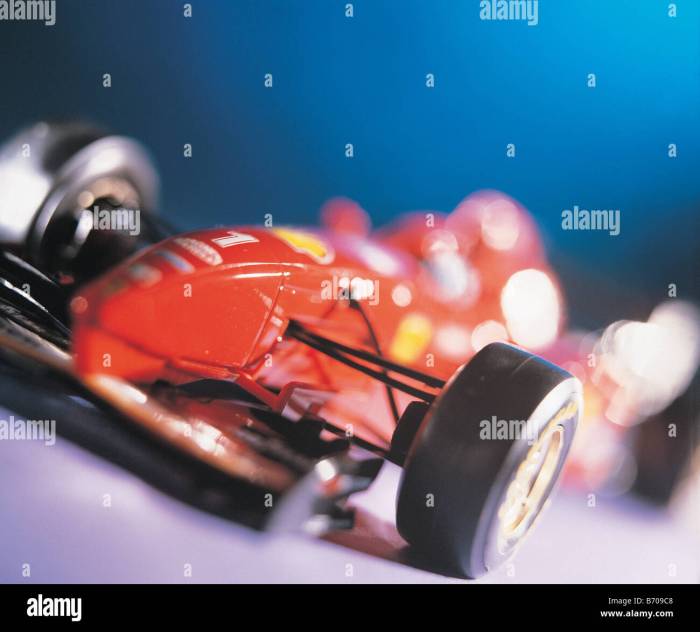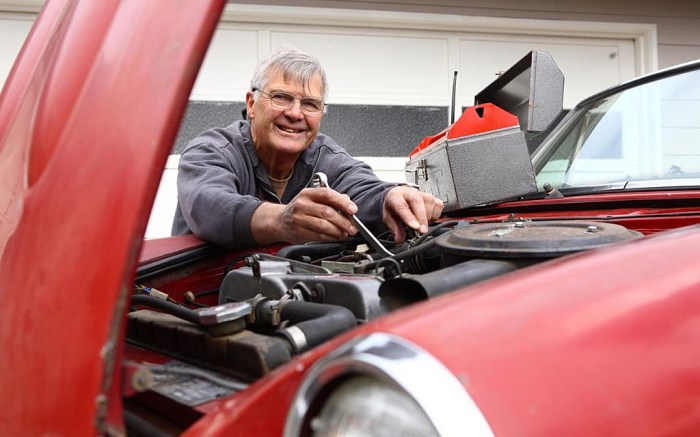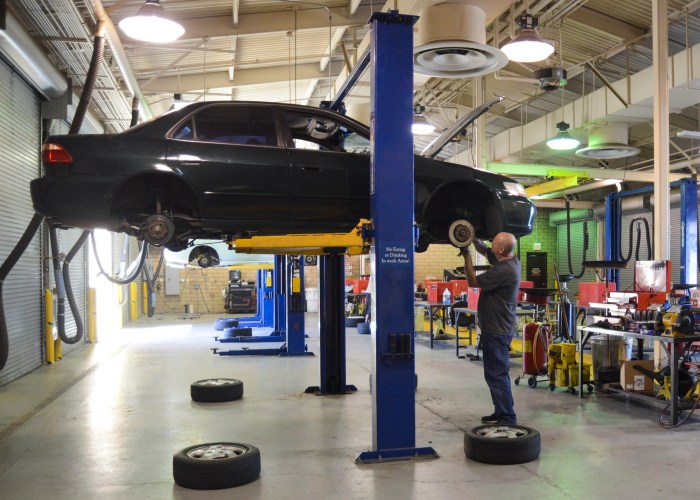Auto Hobby encompasses a vast and varied landscape of activities, from meticulous restoration to adrenaline-fueled racing. This exploration delves into the diverse world of automotive enthusiasts, examining everything from the basic principles of car maintenance to the intricate art of engine rebuilding. We’ll explore the tools, resources, and communities that fuel this passion, while also addressing crucial safety considerations and the financial aspects involved.
Whether you’re a seasoned mechanic or a curious beginner, this guide provides a comprehensive overview of the Auto Hobby universe.
From detailing a classic car to customizing a modern sports vehicle, the possibilities are endless. This journey examines the practical skills required, the financial investment involved, and the rewarding community aspect that binds enthusiasts together. We’ll dissect the steps involved in various projects, comparing and contrasting the complexities, costs, and time commitments associated with each. Furthermore, we’ll highlight the importance of safety and sustainability within the Auto Hobby world.
Defining “Auto Hobby”

The term “auto hobby” encompasses a broad spectrum of activities centered around automobiles, ranging from meticulous restoration projects to high-octane racing endeavors. It’s a diverse field uniting individuals with a shared passion for vehicles, attracting participants across a wide range of skill levels and financial resources. This shared interest fosters a vibrant community where knowledge is exchanged, skills are honed, and a deep appreciation for automotive engineering and design is cultivated.Auto hobbies are not merely about fixing cars; they represent a multifaceted engagement with automotive culture.
The depth and breadth of this interest are reflected in the diverse niches within the hobby, each with its own unique challenges, rewards, and dedicated communities.
Auto Hobby Niches
The auto hobby world is rich with specialized areas of interest. Restoration, for instance, involves painstakingly returning a classic car to its original condition, often requiring extensive research, sourcing of parts, and advanced mechanical skills. Customization, on the other hand, focuses on modifying a vehicle to reflect the owner’s personal style and preferences, often incorporating aesthetic changes and performance enhancements.
Racing, whether on a track or off-road, presents a different set of challenges, demanding precision driving skills, mechanical expertise, and a competitive spirit. Finally, regular maintenance and repair, though often less glamorous, are crucial aspects of car ownership and represent a fundamental auto hobby for many. These represent only a few of the numerous specializations within the auto hobby world.
Categorizing Auto Hobbies by Skill Level
The following table categorizes different auto hobbies based on the required skill level, necessary tools, and estimated cost. These are estimates and can vary greatly depending on the specific project and the individual’s approach. For example, a basic oil change (Beginner) can cost under $50, while a full engine rebuild (Advanced) can easily reach into the thousands. Similarly, tool requirements range from basic hand tools for simple maintenance to specialized equipment for advanced restoration projects.
| Hobby Type | Skill Level | Required Tools | Estimated Cost |
|---|---|---|---|
| Basic Maintenance (Oil Change, Tire Rotation) | Beginner | Wrench, jack, oil filter wrench, funnel | $25 – $75 |
| Detailing/Cleaning | Beginner | Washing supplies, vacuum, detailing brushes | $50 – $200 |
| Minor Repairs (Brake Pad Replacement, Headlight Bulb Change) | Intermediate | Wrench set, socket set, screwdrivers, pliers | $100 – $500 |
| Engine Rebuild | Advanced | Engine hoist, specialized tools, torque wrench, diagnostic equipment | $1000+ |
| Classic Car Restoration | Advanced | Welding equipment, bodywork tools, paint booth, specialized tools | $10,000+ |
Popular Auto Hobby Activities
The automotive hobby encompasses a vast range of activities, from meticulous detailing to complex engine rebuilds. The level of commitment, required skillset, and financial investment vary significantly depending on the chosen pursuit. This section details some of the most popular activities, offering insights into their processes and demands.
Car Detailing: A Step-by-Step Guide
Car detailing goes beyond a simple wash and wax; it’s a meticulous process aimed at restoring a vehicle’s finish to its pristine condition. The process demands patience and attention to detail, but the results are rewarding.
- Pre-wash Preparation: Begin by rinsing the car thoroughly to remove loose dirt and debris. This prevents scratching during the subsequent washing stage. Imagine a powerful jet of water washing away the initial layer of grime.
- Wash and Rinse: Use a dedicated car wash soap and a wash mitt or sponge, working in sections from top to bottom. Rinse frequently to avoid spreading dirt. Picture the gentle motion of the wash mitt across the car’s surface, removing embedded dirt.
- Drying: Dry the car completely using a microfiber drying towel, working in sections to avoid water spots. Imagine the plush microfiber towel absorbing the water, leaving a streak-free shine.
- Wheel Cleaning: Clean the wheels and tires using a dedicated wheel cleaner and brush, paying close attention to crevices. Visualize the deep cleaning action of the brush, removing brake dust and grime.
- Interior Cleaning: Vacuum the interior thoroughly, paying attention to carpets, seats, and crevices. Then, use appropriate cleaning products to clean interior surfaces. Picture the meticulous cleaning of every surface within the vehicle’s cabin.
- Polishing and Waxing: Apply a car polish to remove minor imperfections and enhance the shine. Follow with a coat of wax to protect the paint and add depth to the shine. Imagine the polishing compound buffing out minor scratches, restoring the car’s luster.
Basic Car Maintenance: A Practical Guide
Regular car maintenance is crucial for extending its lifespan and ensuring its safe operation. This involves a series of straightforward tasks that can be performed at home.
- Checking Fluids: Regularly check engine oil, coolant, brake fluid, power steering fluid, and windshield washer fluid levels. Use the dipstick to check oil level; coolant and other fluid levels are typically visible through translucent reservoirs. Imagine checking each fluid level and noting any deficiencies.
- Tire Pressure and Condition: Check tire pressure using a gauge and inflate to the recommended pressure found in the owner’s manual or on the tire sidewall. Inspect tires for wear and tear, looking for cuts, bulges, or uneven wear. Visualize the gauge indicating the pressure, and the careful inspection of the tires’ tread and sidewalls.
- Battery Inspection: Inspect the battery terminals for corrosion and clean them if necessary. Also, check the battery’s water level (if applicable) and top it off with distilled water. Picture the careful cleaning of the battery terminals and the addition of distilled water.
- Air Filter Replacement: Replace the air filter as recommended in the owner’s manual. A dirty air filter restricts airflow to the engine, reducing performance and efficiency. Imagine the clean new air filter replacing the old, dusty one.
- Wiper Blade Replacement: Replace worn wiper blades for optimal visibility. Streaking or smearing indicates the need for replacement. Picture the smooth, even wipe of new wiper blades across the windshield.
Engine Rebuilding vs. Custom Paint Jobs: A Comparative Analysis
Engine rebuilding and custom paint jobs are both popular auto hobby activities, but they differ significantly in terms of cost, time commitment, and skill requirements.
| Feature | Engine Rebuilding | Custom Paint Job |
|---|---|---|
| Cost | High (parts, tools, potential machine shop work) | High (paint, materials, potentially professional labor) |
| Time Commitment | Very High (potentially weeks or months) | High (several days to weeks depending on complexity) |
| Required Skills | Extensive mechanical knowledge and experience | Painting skills, preparation techniques, and attention to detail |
| Example Cost Range | $2,000 – $10,000+ | $1,000 – $5,000+ |
| Example Time Range | 50-200+ hours | 40-100+ hours |
Safety in Auto Hobbies

Working on vehicles, whether for restoration, modification, or routine maintenance, presents inherent risks. Ignoring safety precautions can lead to serious injury or even death. A proactive approach to safety is crucial, ensuring both personal well-being and the successful completion of any automotive project. This section Artikels essential safety practices and equipment for various auto hobby activities.
Safe Handling of Tools, Auto Hobby
Proper tool handling is paramount to prevent accidents. Always use the correct tool for the job, ensuring it’s in good working order—free from damage or excessive wear. Before using power tools, inspect cords for damage and ensure they are properly grounded. Wear appropriate personal protective equipment (PPE), such as safety glasses, to shield eyes from flying debris.
When using hand tools, maintain a firm grip and use caution to avoid slips or mishaps. Keep your workspace organized to prevent tripping hazards and ensure easy access to tools. Never attempt repairs beyond your skill level; seek professional assistance when needed. For example, attempting to work on high-pressure fuel systems without proper training and equipment can lead to serious injury or fire.
Safe Handling of Chemicals
Automotive work often involves exposure to various chemicals, including solvents, paints, and lubricants. Always read and follow the manufacturer’s instructions on safety data sheets (SDS) before handling any chemical. Ensure adequate ventilation to minimize inhalation of fumes. Wear appropriate PPE, such as gloves, respirators, and eye protection, to prevent skin and respiratory irritation or damage. Store chemicals properly in designated containers, away from ignition sources and out of reach of children.
Dispose of hazardous waste according to local regulations. For instance, improperly disposing of used motor oil can contaminate groundwater. Never mix chemicals unless specifically instructed to do so by the manufacturer, as this can create dangerous reactions.
Essential Safety Equipment
The specific safety equipment needed will vary depending on the auto hobby activity. However, some essential items are common across many projects.
- Safety Glasses: Protect eyes from flying debris, chemical splashes, and impacts. Choose glasses that meet ANSI Z87.1 standards for impact resistance.
- Gloves: Protect hands from cuts, abrasions, chemicals, and grease. Select gloves appropriate for the specific task; nitrile gloves are suitable for many chemical applications, while leather gloves offer better protection against cuts.
- Respirator: Protects the respiratory system from harmful dusts, fumes, and vapors. Choose a respirator with the appropriate filter for the specific chemical being used. N95 respirators are effective against many airborne particles.
- Hearing Protection: Protects hearing from loud noises generated by power tools and machinery. Earmuffs or earplugs are suitable options, depending on the noise level and personal preference.
- Work Boots: Provide protection for feet from dropped objects and potential hazards. Steel-toe boots are recommended for added protection.
- Fire Extinguisher: Essential for quickly extinguishing fires that may occur during welding, soldering, or other potentially flammable activities. A multi-purpose ABC fire extinguisher is generally recommended.
The Cost of Auto Hobbies: Auto Hobby

Auto hobbies, while rewarding, represent a significant financial commitment. The expense varies dramatically depending on the chosen activity, ranging from relatively modest outlays to substantial ongoing costs. Understanding these financial implications is crucial for enthusiasts to ensure their passion remains sustainable and enjoyable. This section details the cost spectrum of various auto hobbies and offers strategies for budget management.
Cost Variations Across Auto Hobbies
The financial burden of an auto hobby is highly dependent on its nature. Simple activities like detailing can be undertaken with relatively low upfront investment. A basic detailing kit, including wash mitts, microfiber towels, and car wash soap, can cost under $100. In contrast, restoring a classic car can easily reach tens of thousands of dollars, encompassing parts, tools, paint, and potentially professional labor.
Similarly, competitive racing carries substantial expenses for vehicle maintenance, fuel, entry fees, and potentially team support. Building a custom car or motorcycle involves substantial costs for parts, fabrication, and specialized tools, potentially exceeding the value of the finished vehicle. Modifying a car for sound systems or performance enhancements can also add up quickly, depending on the level of modification.
For example, a basic audio upgrade might cost a few hundred dollars, while a high-end system could easily exceed $5,000.
Budget Management Strategies for Auto Hobbies
Effective budget management is key to sustaining any auto hobby. Prioritizing projects, setting realistic goals, and meticulously tracking expenses are essential. Enthusiasts should create a detailed budget, allocating funds for parts, tools, repairs, and maintenance. Exploring cost-effective alternatives, such as sourcing used parts or learning basic repair skills, can significantly reduce expenses. Online forums and communities dedicated to specific auto hobbies often provide valuable insights into finding affordable parts and services.
For instance, a forum dedicated to classic car restoration might offer tips on locating inexpensive parts from salvage yards or other enthusiasts. Another strategy is to stagger large purchases, spreading the financial impact over time rather than making significant one-time investments. This can help avoid financial strain and allow for more flexible budgeting.
Budget Template for Auto Hobby Expenses
A well-structured budget template is essential for effective financial tracking. The following table provides a framework for monitoring expenses associated with a chosen auto hobby.
| Month | Parts | Tools | Maintenance | Fuel (if applicable) | Entry Fees (if applicable) | Other Expenses | Total Monthly Expenses |
|---|---|---|---|---|---|---|---|
| January | $50 | $20 | $30 | $0 | $0 | $10 | $110 |
| February | $100 | $0 | $40 | $50 | $0 | $20 | $210 |
| March | $0 | $100 | $20 | $0 | $100 | $0 | $220 |
Auto Hobby and Sustainability
The burgeoning interest in auto hobbies presents a unique opportunity to integrate environmentally conscious practices. While traditionally associated with resource consumption and waste generation, many aspects of auto restoration, modification, and maintenance can be aligned with sustainability goals, minimizing the environmental footprint of this popular pastime. This requires a conscious effort to adopt greener alternatives and implement responsible waste management strategies.The pursuit of sustainable auto hobbies necessitates a multifaceted approach encompassing material selection, waste reduction, and responsible disposal of hazardous materials.
By adopting environmentally friendly practices, enthusiasts can reduce their impact on the planet while continuing to enjoy their passion.
Eco-Friendly Cleaning Products and Waste Disposal
The use of harsh chemicals in cleaning and detailing vehicles is a significant source of pollution. Traditional cleaning products often contain volatile organic compounds (VOCs) that contribute to air pollution and water contamination. Switching to biodegradable, plant-based cleaning solutions significantly reduces this environmental impact. Furthermore, proper disposal of used fluids, such as engine oil and antifreeze, is crucial.
These materials should never be poured down drains or onto the ground. Instead, they should be collected in designated containers and taken to designated recycling centers or auto parts stores that accept used fluids for responsible recycling or disposal. This prevents soil and water contamination, protecting ecosystems and human health. Many municipalities also offer hazardous waste collection days, providing convenient opportunities for proper disposal.
Waste Reduction and Recycling in Auto Hobby Projects
Minimizing waste is a cornerstone of sustainable auto hobbies. Careful planning and meticulous work reduce the amount of scrap metal, plastic, and other materials generated during projects. Reusing and repurposing parts whenever possible is crucial. For example, instead of purchasing new parts, enthusiasts can often find usable components from salvage yards or online marketplaces. This extends the lifespan of existing materials and reduces the demand for new production, lessening the environmental burden associated with manufacturing.
Furthermore, diligent sorting and recycling of materials such as metals, plastics, and cardboard significantly reduces landfill waste. Many recycling centers accept a wide range of automotive-related materials, contributing to a circular economy.
Sustainable Practices in Auto Restoration and Modification
Sustainable practices extend beyond cleaning and waste management. The choice of materials for restoration and modification projects plays a significant role. Opting for recycled or reclaimed materials, such as recycled steel or aluminum, minimizes the environmental impact of sourcing new raw materials. Similarly, selecting energy-efficient lighting and tools reduces energy consumption during projects. For example, LED lighting consumes significantly less energy than traditional incandescent bulbs, resulting in lower electricity bills and a smaller carbon footprint.
Choosing energy-efficient power tools also reduces the overall energy consumption during projects. The selection of low-VOC paints and coatings further minimizes air pollution associated with the hobby. These paints reduce harmful emissions during application and curing, improving air quality in the workspace and beyond.
The world of Auto Hobby is a dynamic blend of skill, passion, and community. Whether you’re drawn to the precision of car detailing, the challenge of engine rebuilding, or the creative freedom of customization, there’s a niche waiting to be explored. By understanding the associated costs, safety precautions, and the wealth of resources available, you can embark on your automotive journey with confidence.
The vibrant community aspect further enhances the experience, providing a platform for collaboration, knowledge sharing, and a shared appreciation for the art and science of automobiles. Ultimately, Auto Hobby is more than just a hobby; it’s a journey of discovery, skill-building, and connection.

